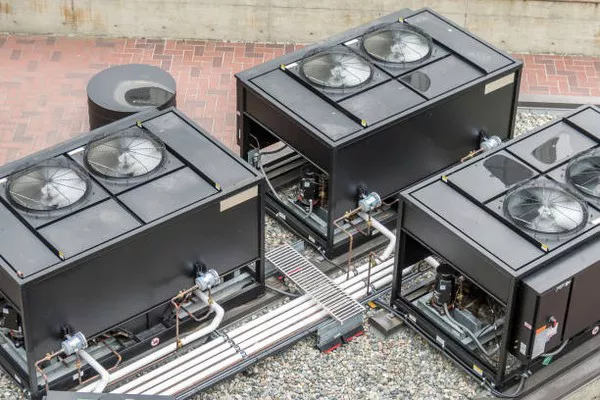A reliable source of electricity is essential for modern living, and power outages can be both inconvenient and disruptive. To ensure your home remains operational during unexpected blackouts, a whole-house generator is an ideal solution. However, selecting the right generator size is crucial to meet your specific power needs. In this article, we will guide you through the process of determining the appropriate generator size for your whole house, considering factors such as your electrical requirements, budget, and desired level of comfort.
Why Whole-House Generators?
Whole-house generators are designed to provide backup power to your entire home, ensuring that essential appliances and systems remain operational during power outages. This differs from portable generators, which typically supply power to only a few appliances. Whole-house generators are permanently installed and automatically activate when they detect a power failure, making them a hassle-free and comprehensive solution for homeowners.
Calculating Your Power Needs
Determining the size of the generator you need begins with calculating your power requirements. The goal is to ensure that the generator can support the essential appliances and systems in your home. Here are the steps to follow:
Create a List: Begin by making a comprehensive list of all the appliances and systems you want to power during an outage. This list should include critical systems like lighting, heating, cooling, refrigeration, and any medical equipment, if applicable.
Determine Wattage: Find the wattage ratings for each item on your list. You can typically find this information on the appliance’s nameplate or in the owner’s manual. For appliances that provide amperage instead of wattage, you can use the formula Watts = Volts x Amps to calculate the wattage.
Calculate Total Wattage: Sum the wattage ratings of all the items on your list to determine the total wattage your generator needs to provide.
Consider Starting Surge: Some appliances, like refrigerators and air conditioners, require a higher initial surge of power to start up. Make sure to account for these surges when calculating your generator’s size.
Professional Assessment: For a more accurate assessment, consider consulting with a professional electrician or generator installer who can help you determine your power needs more precisely.
Sizing Options
Once you have an estimate of your power requirements, you can consider the various generator sizes available. Common generator sizes are often categorized by their power output in kilowatts (kW). Below, we’ll explore different sizing options:
Small Generators (8-20 kW):
- Suitable for small to medium-sized homes.
- These generators can typically power essential systems like lights, heating/cooling, refrigeration, and select appliances.
- They offer a reasonable balance between cost and performance.
Medium Generators (20-40 kW):
- Suitable for medium to large homes.
- These generators can power a broader range of appliances and systems, including well pumps, sump pumps, and more.
- Ideal for homeowners seeking a higher level of comfort during outages.
Large Generators (40 kW and above):
- Suitable for large homes or properties with extensive power needs.
- These generators can support nearly all appliances and systems in your home.
- Often used for luxury homes or properties with specific power demands.
Budget Considerations
The size of the generator you choose will significantly impact your budget. Larger generators with higher kW ratings tend to be more expensive, both in terms of the unit itself and installation costs. Keep the following budget considerations in mind:
Upfront Costs: Larger generators come with higher initial costs. Ensure that your budget can accommodate the purchase and installation of a generator of the size you need.
Operating Costs: Consider the long-term operating costs associated with fuel or maintenance. Larger generators may consume more fuel, so factor this into your budget planning.
Maintenance Costs: Regular maintenance is essential to ensure your generator’s reliability. Larger generators may require more maintenance, which can add to the overall cost.
Peace of Mind: While budget constraints are essential, remember that a whole-house generator offers peace of mind during power outages, protecting your home and family. Consider the value of this peace of mind when making your decision.
Installation and Fuel Options
Once you’ve determined the right generator size for your whole house, it’s essential to consider the installation process and fuel options:
Professional Installation: Installing a whole-house generator is a job best left to professionals. Ensure you hire a certified electrician or generator installer to ensure a safe and reliable installation.
Fuel Type: Whole-house generators can run on different fuel types, including natural gas, propane, and diesel. Choose a fuel source that is readily available and convenient for your home.
Transfer Switch: You’ll need a transfer switch to connect your generator to your home’s electrical system. This device ensures that the generator automatically takes over when the power goes out, and it prevents back-feeding power into the grid, which can be dangerous.
Conclusion
Choosing the right size generator for your whole house is a critical decision that depends on your specific power needs, budget, and the level of comfort you desire during outages. It’s essential to calculate your power requirements accurately, consider sizing options, and budget for the installation, maintenance, and operating costs.
Remember that whole-house generators provide not only convenience during power outages but also peace of mind. Consult with a professional electrician or generator installer to ensure that you select the appropriate generator size and have it installed correctly. With the right generator in place, you can rest assured that your home will remain operational even when the grid goes down, providing you with uninterrupted comfort and security.

